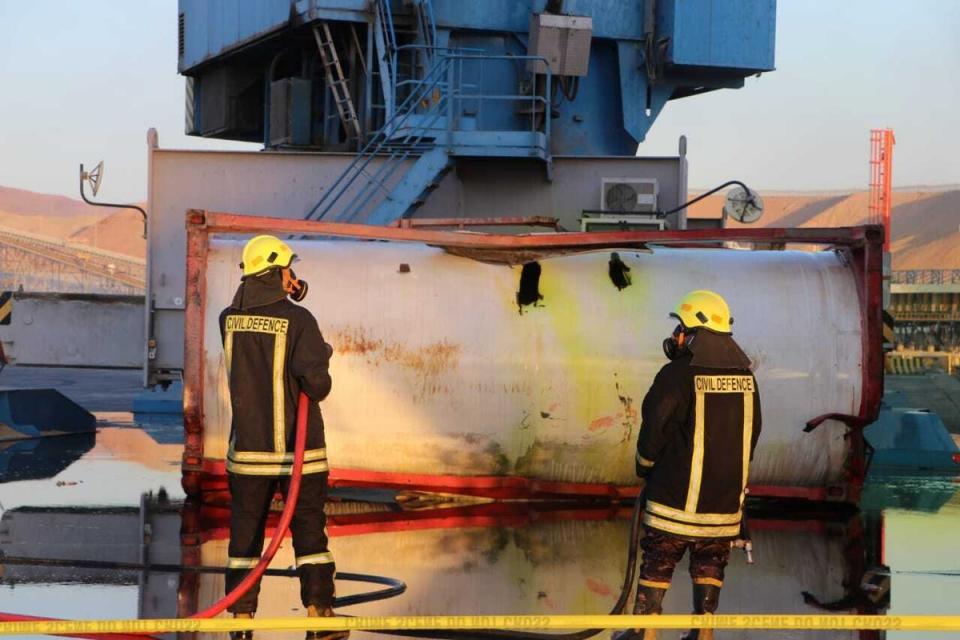Toxic gas explosion at Jordan port kills 13 people and injures 250 more

Thirteen people have been killed and 250 have been injured after an explosion in a Jordan port, state television reported.
The incident occured after a crane loading chlorine tanks onto a ship in Aqaba dropped one of them, causing an explosion of toxic yellow smoke.
A video shared on state television’s Twitter page showed the moment the storage tank fell and exploded onto the deck of the ship, sending dockworkers scrambling to escape the toxic cloud of bright yellow gas. Some 200 people were hospitalised.
#عاجل | فيديو حادث تسرب غاز من صهريج في العقبة#الأردن #العقبة #التلفزيون_الأردني pic.twitter.com/MZqeoUvxtG
— Jordan TV-التلفزيون الأردني (@JrtvMedia) June 27, 2022
Chlorine is a widely used disinfectant and water purification agent, but if inhaled, the gas turns to hydrochloric acid, which can lead to internal burning and drowning through a reactionary release of water in the lungs.
The Public Security Directorate, which initially described it as a gas leak, said authorities sealed off the area after evacuating the injured and sent specialists in to address the situation.
Jordan’s Aqaba grain silos stopped work, but maritime traffic at Aqaba ports continues, the director general of the Jordan Maritime Commission told state news agency Petra.
“We asked the ships that were near the area of the tank explosion to stay away from the area immediately,” Director General Muhammad Salman said.
State media said 13 people were killed, while 199 were still being treated in hospitals. The Public Security Directorate said a total of 251 people were injured.

Dr Jamal Obeidat, a local health official, urged people to stay inside and close windows and doors. The nearest residential area is 25 kilometers (15 miles) away.
Aqaba is on the northern tip of the Red Sea, next to the Israeli city of Eilat, which is just across the border. The port has long been a major transit route for Iraqi imports and exports.
Eilat’s emergency services said in a statement that there was no impact on the city but that they were following the situation closely.

 Yahoo News
Yahoo News 
